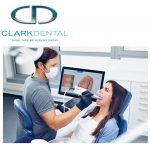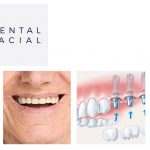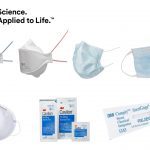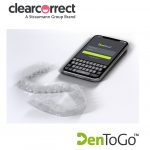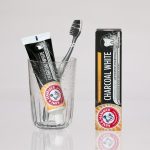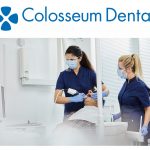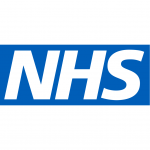Implants are unparalleled in terms of aesthetic and functional dental rehabilitation. They are a discrete restorative solution, but it is not unheard of for patients to be so pleased with them that they will happily tell their friends, family and acquaintances about implant treatment and show off their results.
While dental implants have a phenomenal success rate, implant failure is a possibility and, to some extent, always will be. There are early failures – where some factors result in the implant not properly osseointegrating – and failures that occur during the longer term. Early failures can be reduced with good case selection and surgical skill, but we should expect the number of late failures to gradually rise. This is somewhat a case of being victims of our own success. More people are investing in dental implants and generally living longer, meaning our population is aging. More than a fifth of the population are currently over 65 and this figure is projected to become a full quarter by around 2040.[i]
That extended lifespan can mean more years in a state of poorer health and a potentially longer service life for dental implants. Increasing numbers of people are living with conditions like diabetes, which may increase the risk of peri-implantitis and implant failure.[ii], [iii] With regard to diabetes, how under control the disease is appears to play a substantial role in how much of a risk it is.[iv]
Furthermore, bruxism is a significant risk factor for implant failure, as the habitual movement can exert substantial forces and chip or fracture the implant (and corresponding teeth), as well as overload the implant and surrounding tissues – which can, in turn, result in a loss of retention.[v] Bruxism can occur at any age and is associated with depression, stress, breathing difficulties during sleep, chronic migraine, and gastroesophageal reflux disease (GERD).[vi], [vii] SSRIs that are used to treat depression and anxiety, and proton pump inhibitors used to treat GERD and gastric ulcers, are also associated with implant failure.[viii]
Researching the long-term survival of dental implants (beyond the first decade) is challenging, so the true survivability of implant systems can be difficult to evaluate. One study reported that implant survival after 16 years was just shy of 83% but after 10-16 years, the complication rate was 48%.[ix] However, these numbers may be misleading due to the comparatively small sample size.
Peri-implantitis can be very painful and is the most common cause for late implant failure and implant removal. While early failures are characterised by poor osseointegration, late failures are far less mobile, if at all (outside of terminal cases). This makes removing the implant more difficult and more invasive, thus increasing the risk of causing damage to the surrounding tissues.[x]
Moreover, the loss of an implant does carry with it some increase in risk for subsequent implants, although the implant can be replaced in many cases.[xi] Under some circumstances, immediate implant reinstallation is possible, but alveolar bone loss, infection, inflammation and other factors may dictate the recovery period and additional treatment. Most methods of implant removal damage the bone surrounding the implant, requiring the replacement to have a larger diameter and/or bone graft treatment. Fixture removal kits can help avoid this damage from occurring, but a variety of circumstances can frustrate their use.[xii]
Methods are being developed that can avoid significantly damaging the alveolar bone and widening the socket. There is an advanced technique where a diamond-tipped bur can be used to split the implant into pieces, enabling it to be removed minimally invasively. This method presents a number of challenges. Cutting a titanium implant requires substantial force and generates a lot of heat, requiring a great deal of irrigation to avoid thermal damage to the surrounding bone. Furthermore, cutting the implant inside the mouth unavoidably results in titanium particles being released, which will need to be immediately removed using suction.[xiii] There are numerous other means of removing implants currently in use and being developed.
Implant failure is not simply a biological and mechanical problem. Undergoing treatment is relatively costly, time consuming and invasive for patients to undertake. In the eventuality that something does go wrong, particularly early on, patients can be understandably distressed. Developing a strong rapport with the patient, keeping them informed and assured, can be very beneficial.
If you are dealing with an advanced case such as a failing dental implant, consider referring patients to the multi award-winning Ten Dental+Facial team. Highly experienced in treating patients with complex oral health needs, Ten Dental+Facial offers a range of both general and specialist dental procedures, alongside top-quality dental implant treatment.
Dental implants remain the best restorative option for many partial or fully edentate patients. Their overall failure rate is low and they can function healthily for many years. However, they are not indestructible and the health of the tissue surrounding an implant is important. Patients receiving implants should continue to attend regular follow-up appointments, and be instructed on how to maintain their oral hygiene to minimise the chance of complications.
For more information visit www.tendental.com or call on 020 33932623
Author: Nik Sisodia, implant surgeon and co-Principal of Ten Dental+Facial
[i] ONS. Overview of the UK population: august 2019. Office for National Statistics. 2019. https://www.ons.gov.uk/peoplepopulationandcommunity/populationandmigration/populationestimates/articles/overviewoftheukpopulation/august2019#the-uks-population-is-ageing March 13, 2020.
[ii] Naujokat H., Kunzendorf B., Wiltfang J. Dental implants and diabetes mellitus – a systematic review. International Journal of Implant Dentistry. 2016; 2:5. https://journalimplantdent.springeropen.com/articles/10.1186/s40729-016-0038-2 March 12, 2020.
[iii] Dubey R., Gupta D., Singh A. Dental implant survival in diabetic patients; review and recommendations. National Journal of Maxillofacial Surgery. 2013; 4(2): 142-150. https://www.ncbi.nlm.nih.gov/pmc/articles/PMC3961886/ March 12, 2020.
[iv] Moraschini V., Barboza E., The impact of diabetes on dental implant failure: a systematic review and meta-analysis. International Journal of Oral & Maxillofacial Surgery. 2016; 45(10): 1237-1245. http://dx.doi.org/10.1016/j.ijom.2016.05.019 March 13, 2020.
[v] Zhou Y., Gao J., Luo L., Wang Y. Does bruxism contribute to dental implant failure? A systematic review and meta-analysis. Clinical Implant Dentistry and Related Research. 2015; 18(2): 410-420. https://doi.org/10.1111/cid.12300 March 13, 2020.
[vi] Castroflorio T., Bargellini A., Rossini G., Cugliari G., Deregibus A. Sleep bruxism and related risk factors in adults: a systematic literature review. Archives of Oral Biology. 2017; 83: 25-32. https://doi.org/10.1016/j.archoralbio.2017.07.002 March 13, 2020.
[vii] Li Y, Yu F., Niu L., Hu W., Long Y., Tay F., Chen J. Associations among bruxism, gastroesophageal reflux disease, and tooth wear. Journal of Clinical Medicine. 2018; 7(11): 417. https://www.ncbi.nlm.nih.gov/pmc/articles/PMC6262381/ March 13, 2020.
[viii] Chappuis V., Avila-Ortiz G., Araújo M., Monje A. Medication-related dental implant failure: systematic review and meta-analysis. Clinical Oral Implants Research. 2018; 29(Suppl. 16): 55-68. https://doi.org/10.1111/clr.13137 March 13, 2020.
[ix] Simonis P., Dufour T., Tenenbaum H. Long-term implant survival and success: a 10-16-year follow-up of non-submerged dental implants. Clinical Oral Implants Research. 2010; 21(7): 772-777. https://onlinelibrary.wiley.com/doi/abs/10.1111/j.1600-0501.2010.01912.x March 13, 2020.
[x] Solderer A., Al-Jazrawi A., Sahrmann P., Jung R., Attin T., Schmidlin P. Removal of failed dental implants revisited: questions and answers. Clinical and Experimental Dental Research. 2019; 5(6):
[xi] Zhou W., Wang F., Monje A., Elnayef B., Huang W., Wu Y. Feasibility of dental implant replacement in failed sites: a systematic review. International Journal of Oral & Maxillofacial Implants. 2016; 31(3): 535-545. https://www.ncbi.nlm.nih.gov/pubmed/27183062 March 13, 2020.
[xii] Lee J. Selectable implant removal methods due to mechanical and biological failures. Case Reports in Dentistry. 2017: 9640517. https://doi.org/10.1155/2017/9640517 March 13, 2020.
[xiii] Li C., Chou C. Bone sparing implant removal without trephine via internal separation of the titanium body with a carbide bur. International Journal of Oral & Maxillofacial Surgery. 2014; 43: 248-250. http://dx.doi.org/10.1016/j.ijom.2013.09.010 March 13, 2020.



